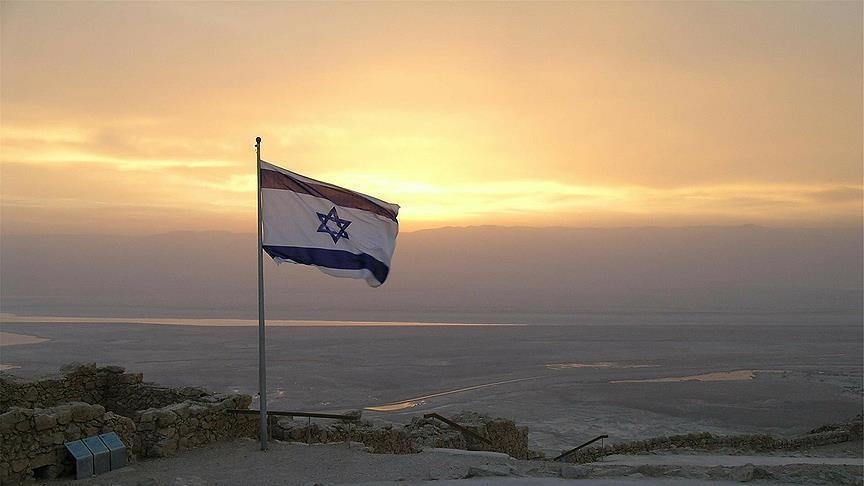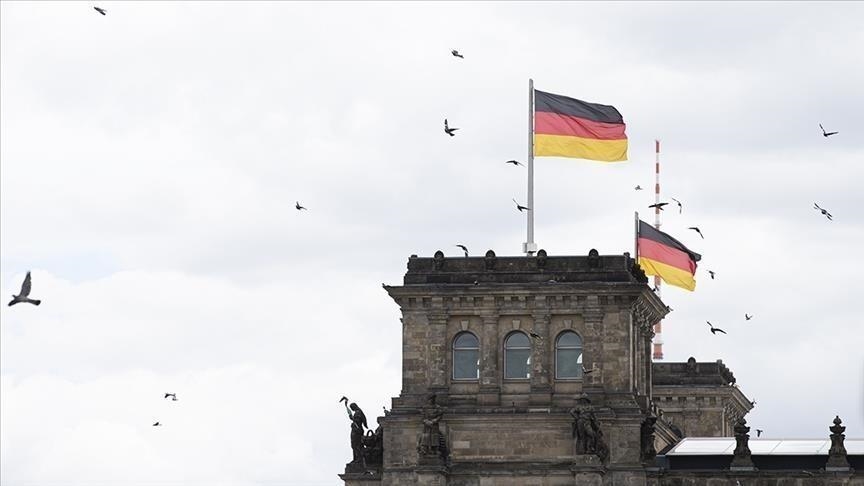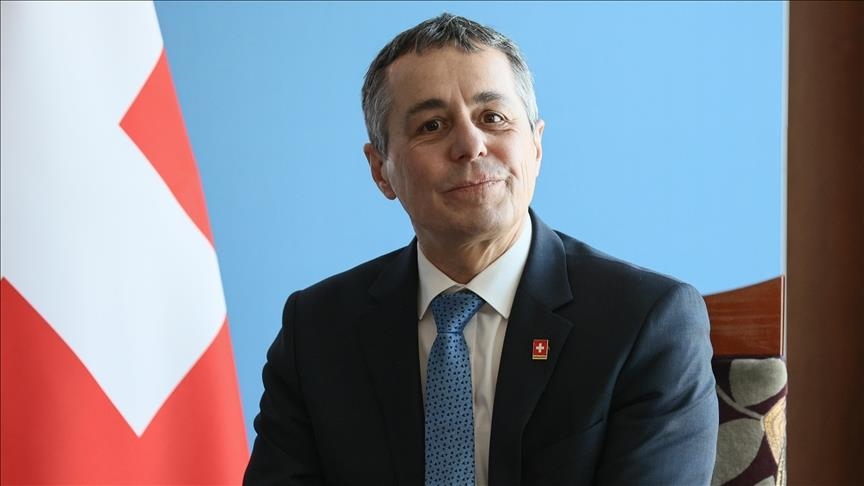Ramzy Baroud |21.08.2024 - TRT/AA

A major meeting point between Israel’s Datim and Europe’s far-right is their mutual hatred for Muslims and Islam
ISTANBUL
Long before the Israeli war-turned-genocide in Gaza began last October, Israel’s support system in the West, particularly in Europe, was experiencing important shifts.
How did Zionism originate?
Though strong support for Israel remained unchanged among Europe’s liberal political circles, Israel itself was moving away from its founding ideology of so-called "liberal Zionism" towards religious Zionism, a totalitarian approach to settler-colonialism that is situated in religious texts and myths.
While liberal Zionists have duly exploited the Jewish religion to achieve colonial ends, Israel’s Datim Leumi, or simply Datim, meaning "religious," formulated a political school of thought that placed Zionism, a modern ideology advanced in the 19th and 20th centuries, at the core of Orthodox Judaism.
The roots of this thinking can be dated to “the teaching of two of the most respected Zionist rabbis, a father and son, belonging to the Kook family,” according [1] to historian Ilan Pappe. The movement, however, owes its global success to current Israeli Prime Minister Benjamin Netanyahu.
The Likud party, the natural evolution of Vladimir Jabotinsky's Revisionist Zionism [2], may have permanently altered the balances of Israel’s political makeup, but it was Netanyahu, the leader of Likud, who built a strong global alliance tailored around Israel’s own far-right policies.
Main source of support for Netanyahu's goals: European far-right
For Netanyahu, Western support for Israel – though in many ways it remained unconditional – was compromised by the notion that lasting peace between the Palestinians and Israel must adhere to the principles of the illegality of the Israeli Jewish settlements, the two-state solution, Palestinian legal and historic rights in occupied East Jerusalem, and so on.
Regardless of the West’s failure to enforce any of these beliefs, Israel rejects the very frame of reference around which these ideas were shaped in the first place. “Everyone knows that I am the one who, for decades, blocked the establishment of a Palestinian state that would endanger our existence,” Netanyahu said in a statement [3] last February.
Israel’s religious and far-right Zionists are now doing their utmost to ensure that there can be no return to any discussion of a Palestinian state. Their main source of support for their position comes from far-right movements in the West. This claim was demonstrated most recently when a group of European countries decided to recognize [4] the state of Palestine on May 28, seven months into Israel’s genocidal war on Gaza. The biggest critics of the decision, which was made by Spain, Norway, and Ireland, came from far-right movements and parties.
In Spain, where Prime Minister Pedro Sanchez had been vocally opposed to Israel’s actions against the Palestinian people, the reaction from the far right was immediate. Santiago Abascal, leader of the far-right Vox party, “decided to come to Israel for a quick show of support,” Israeli daily Yedioth Ahronoth reported. [5] “Abascal also met Netanyahu for an hour-long conversation before leaving Israel,” the paper also reported on June 2.
European far right transformed into another version of Israeli regime
Abascal’s sentiment was echoed by other far-right leaders, such as Geert Wilders in the Netherlands and Marion Marechal in France. The latter stated [6] that recognizing the state of Palestine would equate to recognizing “an Islamist state, with all the dangers that this could represent for Israel and for the West in general.” A major meeting point between Israel’s Datim and Europe’s far-right is their mutual hatred for Muslims and Islam. Soon after the tragic events of Sept. 11, 2001, Netanyahu saw a strategic opportunity to link his country’s war on the Palestinian people to the so-called "war on terrorism."
Though that war may have been officially over, its social and political upshots in Western societies – racism, anti-refugee and anti-immigrant sentiments, and often violence – continue to grow, resulting in the rapid advancement of far-right movements. This promoted Israel to shift away from the typical political rhetoric at the global stage of demonizing the Arabs to that of a civilizational war against "Islamic fundamentalism" in Palestine and throughout the Middle East. The convenient shift allowed Israel to link up with anti-Muslim forces in Europe and beyond.
In a recent opinion piece in Le Monde, author Gilles Paris said [7] that “the 20 (European) parties whose votes (at the European Union Parliament) were most favorable to Israel all belonged to the far right and Eurosceptics, mainly European Conservatives and Reformists.” That accomplishment was the direct outcome of Netanyahu’s and Israel’s diversification of alliances, as it allowed Tel Aviv to put pressure on Western capitals from within its own societies.
In an audio recording obtained [8] by Reuters and published in July 2017, Netanyahu derided, during a meeting with the so-called Visegrad Four, the "Old Europe" for daring to criticize Israel’s dismal human rights record, illegal settlement policies, and military occupation. “I think Europe has to decide whether it wants to live and thrive or it wants to shrivel and disappear,” he said, playing on the far-right Great Replacement theory [9], which argues that Muslim immigrants are set to take over European societies.
The success, however, was only temporary. The Israeli genocide in Gaza has damaged years of relentless Israeli efforts. The far-right defeat in France, the rise of the left, and the routing of Britain’s right in the latest elections demonstrated that blind support for Israel does not always guarantee victory and, in fact, can be a political liability. This is, however, only the beginning of the fight for the future of Europe.
“For a long time, political movements whose roots could be traced back to the dark hours of the Second World War and the Holocaust kept Israel at a distance,” Gilles wrote. The distance, however, has shrunk to the point that Israel’s own government has essentially become just another version of Europe’s far-right extremist parties, arguably the most extremist and certainly the most violent of them all.
(Romana Rubeo, an Italian journalist, contributed to this article.)
[1] https://www.palestinechronicle.com/ilan-pappe-reveals-origins-of-religious-zionism-in-israel-palestine-chronicle/
[2] https://www.palestine-studies.org/en/node/38833
[3] https://www.timesofisrael.com/netanyahu-boasts-of-thwarting-the-establishment-of-a-palestinian-state-for-decades/
[4] https://www.timesofisrael.com/netanyahu-boasts-of-thwarting-the-establishment-of-a-palestinian-state-for-decades/
[5] https://www.israelhayom.com/2024/06/02/leader-of-spains-vox-party-criticizes-sanchez-over-palestinian-state-recognition/
[6] https://www.lemonde.fr/en/opinion/article/2024/05/31/the-new-pro-israeli-clothes-of-europe-s-far-right_6673313_23.html
[7] https://www.lemonde.fr/en/opinion/article/2024/05/31/the-new-pro-israeli-clothes-of-europe-s-far-right_6673313_23.html
[8] https://www.reuters.com/article/world/eu-eastern-states-say-bloc-must-show-more-support-for-israel-idUSKBN1A40WY/
[9] https://www.theguardian.com/world/2022/jun/08/a-deadly-ideology-how-the-great-replacement-theory-went-mainstream
*Opinions expressed in this article are the author’s own and do not necessarily reflect the editorial policy of Anadolu.
The author is a journalist, author, and editor of The Palestine Chronicle. He is the author of six books, including Our Vision for Liberation: Engaged Palestinian Leaders and Intellectuals Speak Out, co-edited with Ilan Pappe. Baroud is a non-resident senior research fellow at the Center for Islam and Global Affairs (CIGA). His website is ramzybaroud.net


















